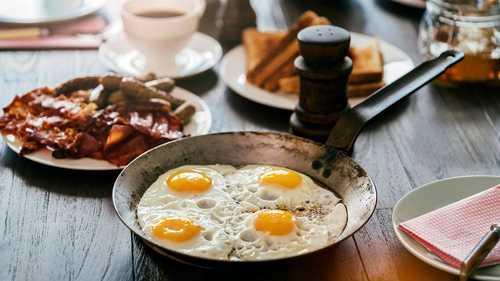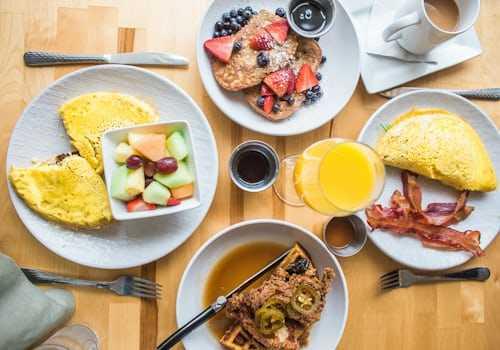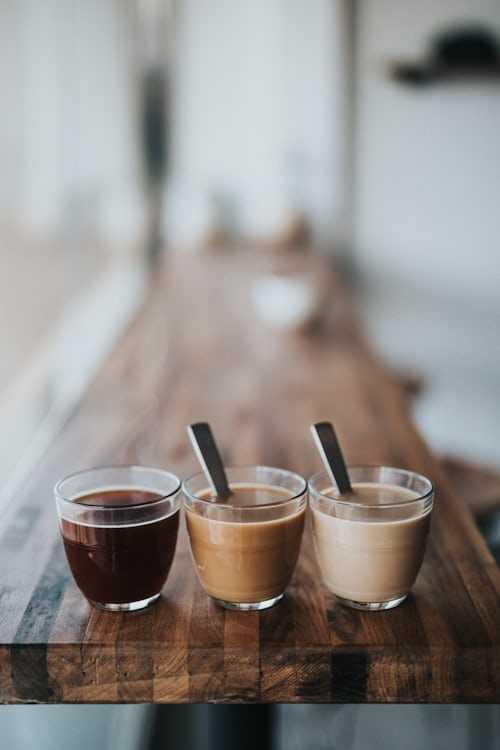Explore the World's Best Ideas
Join today and uncover 100+ curated journeys from 50+ topics. Unlock access to our mobile app with extensive features.
Why we eat breakfast
In North America and Europe, breakfast often consists of bacon, eggs, and toast. However, anything nutritious can be eaten in the morning. So why do Westerners then associate these foods with breakfast?
The word 'breakfast' means different things depending on the language. For example, breakfast as the day's first meal was tied to fasting before taking the Eucharist, but this same meal can mean 'small lunch' in French or even 'light supper' in Italian.
47
1.62K reads
How breakfast changed
In the medieval period, breakfast included fish, beer and wine. Porridges were consumed across meals, not just at breakfast. But, during the Industrial Revolution, people began to spend less time around meals and started to eat light breakfasts.
In the 1920s, Beech-Nut Packing Company wanted to get more people to buy their bacon, so they hired a PR consultant that spread the message that a heavy breakfast would be healthier. And so the meal of bacon (and eggs) became a staple.
41
323 reads
Immigration changed morning meals
Between 1880 and 1920, over 2.5 million Jewish people fled to the United States, many of them Poles.
They opened small bakeries and made goods by hand, including bagels. But, in the '50 and '60, bagels became available pre-packed in grocery stores. The Family Circle magazine spread and popularised the idea of cream cheese, lox and bagels.
40
299 reads
Cold cereal as a health food
Dr John Kellogg ran a sanitorium and made a type of granola out of wheat, cornmeal and oats as a remedy for chronic digestion problems resulting from high-protein diets.
But oat groats had to be soaked before cooking, so with the help of his brother, Kellogg developed a process to produce crispy wheat flakes. Four years later, they started selling toasted corn flakes, and cold cereal was born. Dr Kellogg advertised his corn flakes as healthy through cookbooks and marketing pamphlets.
39
226 reads
Coffee and orange juice
In the Colonial era, Americans preferred tea. However, after England started to tax tea, Americans responded to the Boston Tea Party and drinking coffee became a patriotic duty.
In the 20th century, oranges were found to be an excellent source of vitamin C. In 1942, the U.S. Army offered money to the company that could invent frozen orange juice that tasted good. Richard Morse succeeded to manufacture frozen orange juice concentrate under Minute Made, making O.J. a popular morning drink.
45
306 reads
IDEAS CURATED BY
Claudia Stark's ideas are part of this journey:
Learn more about food with this collection
Leonardo da Vinci's creative process
How to approach problem-solving like da Vinci
The importance of curiosity and observation
Related collections
Similar ideas
12 ideas
The 12 Healthiest Foods to Eat for Breakfast
healthline.com
1 idea
The 12 Healthiest Foods to Eat for Breakfast
healthline.com
Read & Learn
20x Faster
without
deepstash
with
deepstash
with
deepstash
Personalized microlearning
—
100+ Learning Journeys
—
Access to 200,000+ ideas
—
Access to the mobile app
—
Unlimited idea saving
—
—
Unlimited history
—
—
Unlimited listening to ideas
—
—
Downloading & offline access
—
—
Supercharge your mind with one idea per day
Enter your email and spend 1 minute every day to learn something new.
I agree to receive email updates




